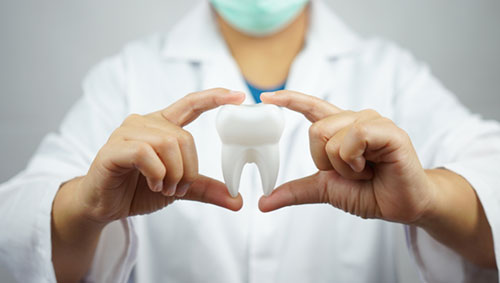Toothy Tales
A healthy mouth and a beautiful smile is everyone’s need. High blood sugar levels may make this more difficult to achieve. Meticulous care and timely check-ups and dental interventions if required, can go a long way in averting many dental challenges that may arise.
How Does Diabetes Affect Oral Health?
Saliva, the fluid that keeps our mouths wet, changes due to high blood sugar levels. Anti–diabetic medications may also reduce the amount of saliva in our mouth. Saliva is very important in washing away food debris and in maintaining a balance of the good and bad organisms in our mouth. Reduced saliva can lead to increased dental decay and gum problems.

High blood sugar may also result in higher sugar levels in saliva. This is used by the bacteria in the mouth to form a sticky smelly film that leads to cavities. These problems when untreated can lead to tooth loss.
Common Dental Problems with Diabetes
- Gum Inflammation – There is a direct association between high blood sugar and poor gum health. Healthy gums are pink in colour and are firmly attached to teeth. Swollen gums are red, spongy and bleed easily. If you see a streak of blood when you spit out paste while brushing, be alert – it is time to visit your dentist. Bleeding from gums is usually the first sign of gingivitis or swollen gums.
- Pyorrhea/Periodontal Disease – Gum disease when untreated affects the bone surrounding the tooth causing it to become loose. Just as the surrounding ground and soil support the root of a tree, healthy gums and bone support the tooth. Any infection or swelling of the gums or bone will affect the health of the tooth.
- Dental Decay – Poor hygiene and high sugar are one of the leading causes for tooth decay. These, if ignored at an early stage, can affect the nerves in the tooth causing severe dental pain.
- Dry Mouth – Saliva helps in cleaning the mouth; it also helps with taste and speech and helps to keep the dentures in place. Dryness of mouth can also cause bad breath.
- Oral Thrush/Candidiasis – This is a common fungal infection seen in patients with a diabetic condition. This appears as a curd like patch on the insides of the cheek and tongue. It usually causes a burning sensation.
- Burning Mouth Syndrome – This may be a common complaint in high blood sugar individuals wherein there is a burning sensation in the mouth, usually seen in elderly women.
How Can I Take Care of My Oral Health If I Have Diabetes?
Most dental problems can be kept away by following some simple dental tips:
- Good Oral Habits – Brushing twice daily with a soft tooth brush in the morning and at bed time helps to maintain healthy gums and teeth. Use a tongue cleaner and floss to clean between teeth. Water irrigators/water flosser/water pik are commercially available in the market to clean and flush debris between teeth and to maintain gum health.
- Good Blood Sugar Control – Follow the advice of a diabetologist to achieve good sugar control. Regular and periodic visits to the physician are important to achieve this. Do not self-medicate or adjust the doses of prescribed drugs without advice from your attending doctor.
- Regular Dental Checkups – Visiting a dentist once every six months and regular dental professional cleaning helps in maintaining healthy gums and teeth, reduces dental decay and controls bad breath.
- Be Observant – Be aware of your teeth and gums. Do not ignore food getting stuck between teeth; this may be because of a tooth decay or the gum may have receded resulting in space between teeth causing food impaction. See your dentist immediately on sensing a gum boil or change in taste (salty) in your mouth.
- Consume Healthy Meals – Having a regular and timely well-balanced healthy diet not only helps to achieve blood sugar control, but also helps in maintaining good oral health.
- Clean Dentures – Individuals using dentures should clean them daily in the morning after regular oral brushing. Dentures must not be worn at bed time, and must be stored in a clean water container box with a lid. Dentures must be regularly checked during dental visits for correct fit and must be remade on advice by the dentist.
Dental problems to a large extent are preventable. Timely checkups go a long way in averting as well as treating issues in a simple and cost-effective manner. In my several years of clinical practice, I have seen several patients who are afraid of dentists and dread the tools we use. Not all teeth require root canals and not all gums need surgeries! A friendly empathetic dentist will lend a patient ear, allay your fears, and set you smiling for a lifetime!!
Keep Smiling…
Cheers!!!

Dr Preeti. L. Anand
Senior Dental Surgeon & Implantologist
Kauvery Hospital Chennai
